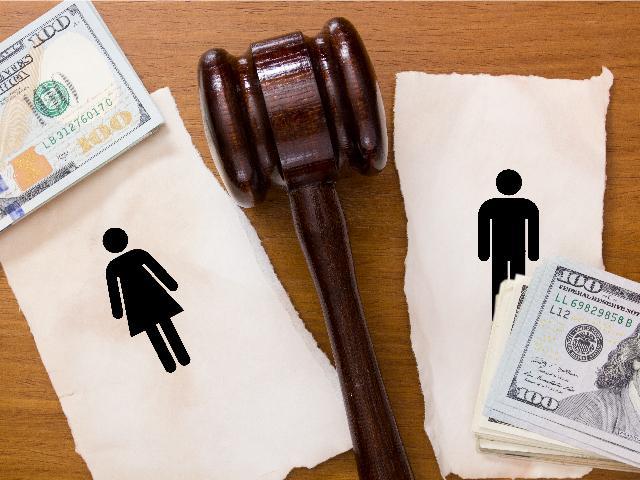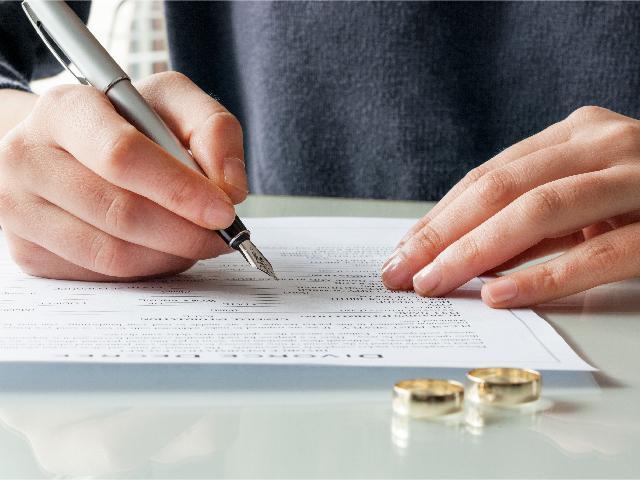** URGENT COVID-19 - WE'RE STILL OPEN *** Please click here for updates.
** COVID-19 - WE'RE STILL OPEN ***
Please click here for updates.
** URGENT COVID-19 - WE'RE STILL OPEN *** Please click here for updates.
** COVID-19 - WE'RE STILL OPEN ***
Please click here for updates.
Divorce. That’s a word that usually conjures up heartache: Like that pain, you felt from too many “angry nights and tearful dawns,” to steal a few lyrics from an old Carly Simon song.
Or the memories of a childhood in which you were shuttled back and forth between two parents who could barely be civil to one another.
I’m sure that no one begins a marriage with the thought of its termination.
Let’s face it, in those early years you believe the intense passion that you are feeling will continue forever. And after twenty-five or thirty years together, you might assume you have forged a bond that can’t be broken.
But statistics tell us otherwise.
Divorce rates have remained steady at close to fifty-percent for quite a few years, and even though it looks like the rate might be trending downward. The most optimistic projections—and they are only projections—indicate that one in three marriages in the future will end in divorce or permanent separation.
And these unhappy endings can come shortly after the honeymoon or a few months shy of your silver anniversary.
“So what’s the big deal?” you might be thinking to yourself. “Feelings change. And when they do, you move on and start over.”
Oh, if it were only that simple, but the reality is that the longer you have been together, the more complicated the breakup will be. And even if you’ve only been together for several years, you need to consider a host of factors. Here are just a few:
The financial part of any divorce can be overwhelming to digest. Child support, alimony, insurance matters, and unbundling joint savings accounts are just some of the complex issues you will face.
But the often-overlooked matter of pensions—in other words, what happens with them—can’t be ignored, especially in cases where large sums have accumulated over the years. Here are four facts to consider about pensions during a divorce:
During your marriage, you and your spouse planned and saved for future retirement. Regardless of whose job or salary provided the accumulation of the funds, at the time the funds were being set aside, they were for your retirement as a couple.
And although the laws of your state will spell out the specifics of what is marital property, retirement money added during the marriage is treated as joint property. This includes:
Keep in mind that you and your spouse may negotiate any number of methods for dividing marital property. But proceed with caution. Your share of a pension might have a higher value than the assets your spouse is offering to trade.

The most important thing to remember is that retirement assets, no matter which of you was responsible for the contribution, are included in the property to be divided.
So, make sure you search for retirement statements from 401K accounts, pensions, and profit-sharing plans from previous employers. Also, look for any old IRA accounts from banks or brokerage companies that may have been forgotten.
If your spouse came into the marriage having already contributed to a 401K, those funds will likely be considered separate property and will not be included in the assets to be divided.
But in some states, if the value of funds in a separate property increases during the marriage, the amount that it grew is added to the marital property. (Did I mention that this could get complicated?)
Yes, you are entitled to a share of your spouse’s retirement assets in a divorce. No, it does not happen automatically.
You must ask for your share of the pension at the time of your divorce—not when your spouse retires!—and follow a procedure so the court can award it to you. (More about that process, called a QDRO, below).
You will need to get as much information as you can from your spouse’s company benefits office. Even though you are the beneficiary and have a right to this information, the office might not send it to you unless your attorney requests it.

Immediately notify the pension plan administrator (in writing) that you are in divorce proceedings. This notification will prevent the plan from paying out the funds, including your share, to your spouse before the divorce is finalized.
If your spouse has more than one pension, you will need to contact each plan.
It’s not uncommon for non-working (or non-covered) partners to assume that a divorce settlement agreement will protect their rights to a share of the retirement accounts that were accumulated during the marriage. Unfortunately, that isn’t usually the case.
To ensure that your spouse’s pension plan recognizes your right to a portion of the funds after the divorce, you will need to obtain a special court order called a Qualified Domestic Relations Order (QDRO).
Send it to the pension plan administrator without delay. The QDRO will direct the administrator on how to pay your share of the plan benefits. It also allows the money in a retirement account to be split up and transferred to your IRA without penalty.

After receiving the QDRO, the plan will make sure that all of the necessary information (who gets paid, how much, and when?) before releasing the funds.
They will also want to make sure that the court order does not require them to pay out in a way that is not permitted under the plan.
In other words, if the plan does not allow employees to take out a single, lump-sum payment, then you won’t be able to receive payouts in that manner.
Keep in mind that a QDRO is a critical component for dividing a pension or 401K, but it is not necessary for an IRA or a Simplified Employee Pension (SEP). Also, federal, state, municipal, and military retirement plans have separate rules for dividing retirement assets.
Because a QDRO can be complicated, your attorney might subcontract its preparation to a QDRO specialist.
If you’re divorcing, don’t forget this critical step. You could put your rightful share of retirement funds at risk. The QDRO, issued as close to the time of divorce as possible, can help protect you.

As you search for information on your spouse’s pension plan, don’t overlook retirement assets from other sources in addition to the obvious private pension, IRA, 401K, profit-sharing plan, and SEP. These include the following:
Social Security: If you are divorced, but your marriage lasted ten years or longer, you can receive benefits on your ex-spouse's record if:
Check out the details at https://www.ssa.gov/planners/retire/divspouse.html
Consider this list and other possibilities, to make sure you have captured everything eligible for division in a final settlement.
Stay cool and focused: All you’re looking for is the most favorable outcome.
Although divorce is an emotional experience, the more dispassionately you can approach the process, the better the outcome will be for you. After all, once a divorce is final, you’re pretty much stuck with the outcome.
It’s critical to have a firm handle on pensions and other retirement investments during the proceedings, even though you may be distracted dealing with a host of other issues at the same time. Remember, your financial future depends on it!
Is a divorce starting to show up on your life’s radar screen?
Have you prepared yourself adequately to prevent the financial damage that you will incur if you are not treated fairly in a settlement?
Have you given thought to the help you might need (a divorce attorney, financial analyst, etc.) to guide you safely through the financial complexities?
Take the guesswork out of divorce fees. Click here to learn more.
Jack’s Law Office
305 S Sandusky St
Delaware, OH 43015
(740) 369-7567